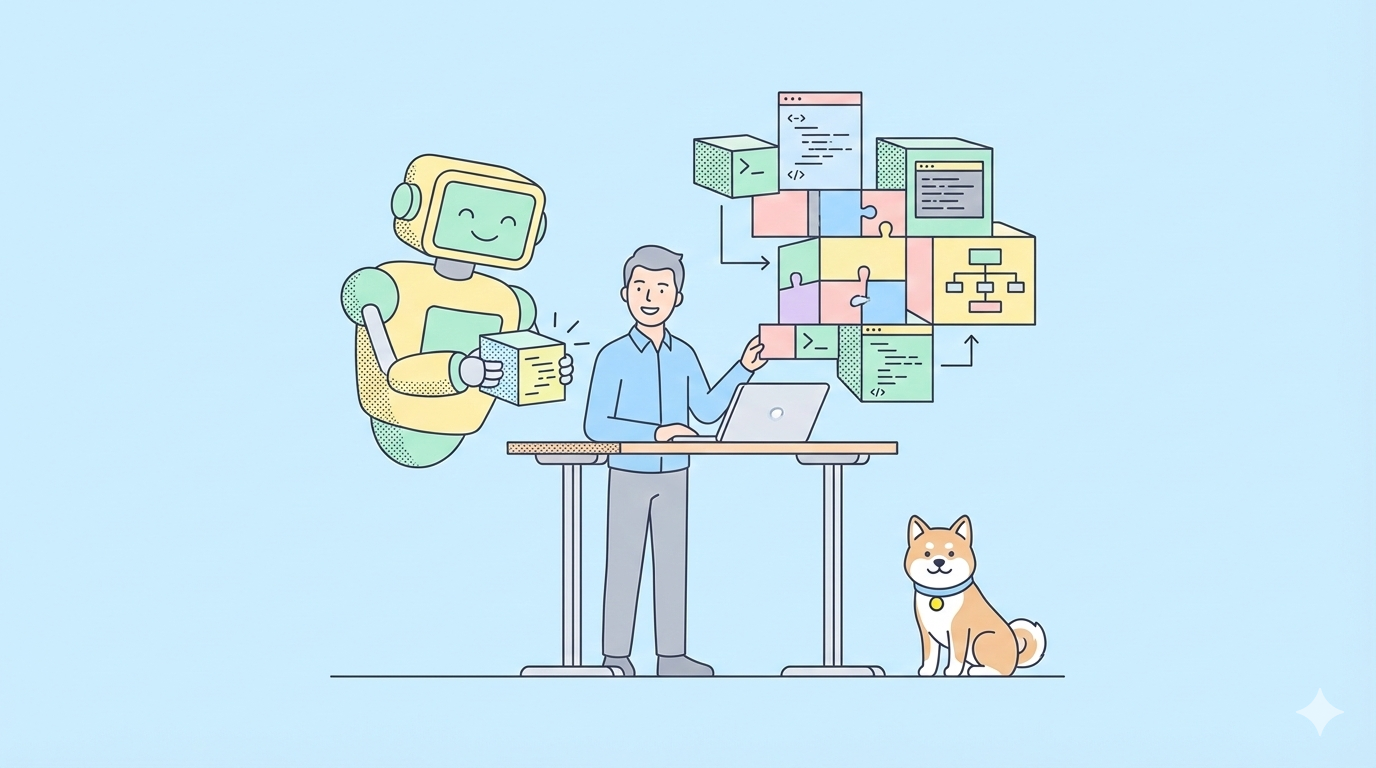The ascent of Web 3.0 marks a paradigm shift in how we interact with the digital world. Moving beyond the centralized platforms of Web 2.0, this new era champions decentralization, user ownership, and a more transparent, permissionless internet. At the heart of this transformation lie Application Programming Interfaces (APIs), the unsung heroes that enable developers to build innovative decentralized applications (dApps), integrate blockchain functionalities, and unlock the vast potential of this burgeoning ecosystem.
For developers venturing into Web 3.0, navigating the landscape of available tools can be daunting. This article aims to demystify a crucial part of that landscape by presenting over thirty public APIs, drawn from community-curated resources like the web3-public-apis GitHub repository and other reputable sources. These APIs provide the foundational building blocks for a wide array of Web 3.0 projects, from DeFi platforms and NFT marketplaces to decentralized identity solutions and beyond.
Want an integrated, All-in-One platform for your Developer Team to work together with maximum productivity?
Apidog delivers all your demands, and replaces Postman at a much more affordable price!
APIs for Web 3.0 Projects? Why?
In essence, APIs act as messengers, allowing different software applications to communicate and exchange data. In the context of Web 3.0, they are particularly vital. Blockchains, the distributed ledger technology underpinning most Web 3.0 applications, can be complex to interact with directly. APIs simplify this interaction, providing developers with standardized ways to achieve several key functions. These include accessing blockchain data, which means retrieving information about blocks, transactions, smart contracts, and token balances. Furthermore, APIs allow for interaction with smart contracts, enabling the execution of functions on these contracts to perform actions within a dApp. They also facilitate the management of digital assets, encompassing the creation, transfer, and oversight of cryptocurrencies and Non-Fungible Tokens (NFTs). APIs are also instrumental in connecting to decentralized services, allowing integration with decentralized storage, identity, and governance protocols. Finally, they are crucial for aggregating data, which involves collecting and synthesizing information from multiple blockchain networks or DeFi protocols.
By abstracting away the underlying complexities, Web 3.0 APIs empower developers to focus on building user-friendly applications and novel functionalities, accelerating the growth and adoption of the decentralized web.
A Curated Selection of Public Web 3.0 APIs
Below is a comprehensive, though not exhaustive, selection of public APIs categorized by their primary function. Each entry includes a brief description and a link to its documentation or homepage, enabling you to dive deeper and explore their capabilities for your next Web 3.0 project.
Blockchain Data & Node Access
These APIs provide foundational access to blockchain data, allowing developers to query transactions, blocks, and network states. Many also offer node services, removing the need for developers to run and maintain their own blockchain nodes.
Alchemy is a leading Web3 developer platform providing supercharged blockchain APIs, node infrastructure, and developer tools for Ethereum, Polygon, Solana, Arbitrum, Optimism, and more. You can find it at https://www.alchemy.com/.
Infura offers reliable and scalable access to Ethereum and IPFS networks, widely used by dApps for sending transactions and retrieving data. Explore Infura at https://www.infura.io/.
QuickNode provides fast and reliable access to over twenty blockchains via dedicated node services and powerful APIs. Visit https://www.quicknode.com/ to learn more.
Ankr offers a suite of Web3 infrastructure solutions, including public RPC (Remote Procedure Call) APIs for various blockchains, staking, and API services. Discover Ankr at https://www.ankr.com/.
Moralis provides a comprehensive backend infrastructure for Web3 development, including real-time blockchain data, NFT APIs, and user authentication. Learn more at https://moralis.io/.
Covalent offers a unified API to access rich, granular data from multiple leading blockchain networks, including token balances, transactions, and log events. See its offerings at https://www.covalenthq.com/.
Bitquery provides powerful GraphQL APIs for accessing and analyzing on-chain data across multiple blockchains, specializing in DEX and NFT data. Explore Bitquery at https://bitquery.io/.
The Graph is a decentralized indexing protocol for querying networks like Ethereum and IPFS. Anyone can build and publish open APIs, called subgraphs, making data easily accessible.1 Find out more at https://thegraph.com/.
Etherscan API provides direct access to Ethereum's block explorer data and services via API endpoints. Similar services exist for other chains like BscScan and PolygonScan. Access the Etherscan API documentation at https://etherscan.io/apis.
Blockdaemon offers institutional-grade blockchain infrastructure, including node access and APIs for a wide array of protocols. Visit https://blockdaemon.com/.
GetBlock provides access to full nodes from multiple blockchains, including Bitcoin, Ethereum, Binance Smart Chain, and more, via a JSON-RPC API. Learn more at https://getblock.io/.
NOWNodes offers API access to full nodes and blockbook explorers for over fifty blockchains. Explore their services at https://nownodes.io/.
NFT (Non-Fungible Token) APIs
NFTs have exploded in popularity, and these APIs help developers build marketplaces, track ownership, and manage NFT metadata.
OpenSea API allows developers to access NFT data and build applications on top of the OpenSea marketplace, one of the largest NFT trading platforms. Its documentation is at https://docs.opensea.io/.
Rarible Protocol API is a decentralized toolset and API for working with NFTs, enabling building custom NFT experiences and integrations. Refer to their developer documentation via https://rarible.org/protocol.
NFTPort provides multi-chain NFT infrastructure and APIs for minting, retrieving, and searching NFTs, aiming to simplify NFT application development. Visit https://www.nftport.xyz/.
BlockSpan offers comprehensive NFT metadata, activity, pricing, and ownership information in real-time across multiple chains. Learn more at https://blockspan.com/.
SimpleHash provides a multi-chain NFT API for querying metadata, media, and transactions, supporting numerous blockchains. Explore SimpleHash at https://simplehash.com/.
Center offers an NFT data provider and search engine, helping developers integrate NFT data into their dApps. Visit https://center.app/.
NFTScan API is a professional NFT explorer and data analysis platform offering robust NFT API services. Discover its capabilities at https://www.nftscan.com/.
DeFi (Decentralized Finance) APIs
DeFi is a cornerstone of Web 3.0, and these APIs provide access to market data, trading functionalities, and protocol interactions.
The 0x API is a professional-grade decentralized exchange aggregation API that allows developers to easily tap into deep liquidity across a growing number of DEXs. Find it at https://0x.org/api.
The 1inch API provides access to the 1inch Network's aggregation and limit order protocols, enabling developers to find the best swap rates across multiple DEXs. Explore its features at https://1inch.io/api/.
The CoinGecko API offers comprehensive cryptocurrency market data, including prices, trading volume, market capitalization, and historical data for thousands of coins. Access it at https://www.coingecko.com/en/api.
The CoinMarketCap API provides access to a vast range of cryptocurrency market data, similar to CoinGecko, used widely for tracking prices and market trends. It can be found at https://coinmarketcap.com/api/.
The Zapper API allows developers to track DeFi portfolios, including assets, debts, liquidity pools, and yield farming activities across multiple protocols. Note that API availability and public access may vary. Check their documentation at https://zapper.fi/docs/api/.
The DeBank API offers a rich set of APIs for tracking DeFi portfolios, protocol data, and user rankings across numerous chains. Visit https://open.debank.com/.
The Portals.fi API provides transaction bundling, any-to-any swaps, and real-time data for DeFi assets. Look for their developer/API sections at https://portals.fi/.
Decentralized Storage APIs
These APIs allow applications to interact with decentralized storage networks, offering censorship-resistant and resilient data storage solutions.
The IPFS (InterPlanetary File System) API is fundamental. While IPFS itself is a protocol, services like Infura, Pinata, and Fleek provide HTTP APIs to easily interact with the IPFS network for pinning files and retrieving data. The core protocol API documentation is at https://docs.ipfs.tech/reference/http/api/.
Pinata is a popular pinning service for IPFS that offers a user-friendly API for managing files and metadata on the decentralized web. Learn more at https://www.pinata.cloud/.
Filebase provides an S3-compatible API for accessing decentralized storage networks like IPFS, Sia, and Storj, simplifying integration for developers familiar with S3. Visit https://filebase.com/.
The Storj DCS (Decentralized Cloud Storage) API offers S3-compatible API access to its distributed and encrypted cloud storage network. Discover it at https://www.storj.io/.
Arweave is a protocol for permanent data storage. Gateways and client libraries provide API-like access to store and retrieve data from the Arweave network. Explore developer resources for interaction methods at https://www.arweave.org/.
Decentralized Identity & Naming APIs
These APIs facilitate the use of decentralized identifiers (DIDs) and naming services, enabling more user-centric control over digital identity.
ENS (Ethereum Name Service) Resolution is key. While not a traditional REST API, libraries like ethers.js and web3.js provide functions to resolve ENS names to Ethereum addresses and vice versa. Public gateways also offer HTTP resolution. Explore developer documentation for integration at https://ens.domains/.
The SPACE ID API offers a Web3 Name SDK & API to integrate universal domain name services across multiple blockchains like .eth, .bnb, and .arb. Its documentation is at https://docs.space.id/.
The Unstoppable Domains API allows developers to resolve .crypto, .zil, .eth, and other blockchain domain names to cryptocurrency addresses and decentralized content. Find developer resources at https://unstoppabledomains.com/developers.
Oracles & Off-Chain Data
Oracles are crucial for connecting smart contracts with real-world data.
The Chainlink API and network are central here. Chainlink provides a decentralized oracle network that enables smart contracts to securely access off-chain data feeds, web APIs, and traditional bank payments. Developers primarily interact with Chainlink by requesting data from on-chain contracts that are powered by the network. Documentation at https://chain.link/ will guide how to consume Chainlink data feeds and services.
Utility & Other Notable APIs
This category includes other useful APIs that don't neatly fit into the above sections but are valuable for Web 3.0 development.
The DappRadar API provides data and insights on decentralized applications, including user activity, transaction volumes, and dApp rankings across various blockchains. Access it via https://dappradar.com/api.
Covalent Class B Endpoints, for instance for pricing, are also very useful. Beyond raw data, Covalent offers specific endpoints for things like historical token prices, which are incredibly useful for many Web3 applications. Their documentation can be found at https://www.covalenthq.com/docs/api/.
Choosing the Right API for Your Project
With such a diverse array of APIs available, selecting the right one depends heavily on the specific needs of your Web 3.0 project. Developers should consider several factors. Blockchain support is crucial: does the API support the blockchain(s) you are targeting? Data granularity is another point: what level of detail do you need in the data? Understanding rate limits and pricing is also important, especially as your application scales. Ease of integration, indicated by clear documentation, SDKs, and a supportive developer community, should be assessed. Reliability and scalability are key; choose APIs from reputable providers known for their uptime and ability to handle load. Finally, consider specific features: do you need real-time data streams, historical data, specific NFT metadata, or DeFi protocol interactions?
Many developers will find themselves using a combination of these APIs to build robust and feature-rich Web 3.0 applications. For instance, a DeFi dashboard might use a node provider API for real-time balances, a data aggregation API like Covalent or Bitquery for historical transactions, and a price feed API like CoinGecko for current market values.
The Future is Composable
The Web 3.0 API economy is vibrant and rapidly evolving. New APIs are constantly emerging, offering more specialized functionalities and improved developer experiences. This rich ecosystem of tools fosters composability, allowing developers to combine different services and protocols like building blocks to create entirely new and innovative applications.
As the Web 3.0 space matures, we can expect to see even more sophisticated APIs that further simplify development, enhance security, and unlock new use cases. By leveraging these powerful tools, developers are not just building applications; they are constructing the foundational infrastructure of a more decentralized, transparent, and user-empowered internet. Whether you're a seasoned blockchain developer or just starting your Web 3.0 journey, the APIs discussed here provide an invaluable starting point for turning your innovative ideas into reality.



